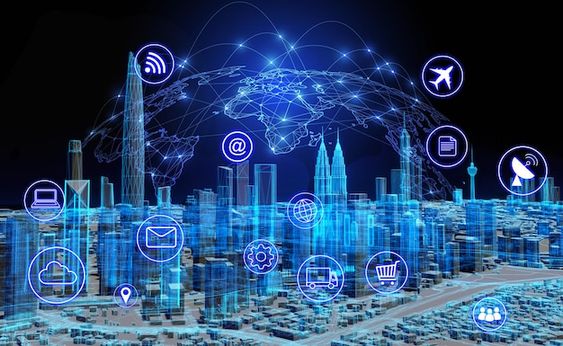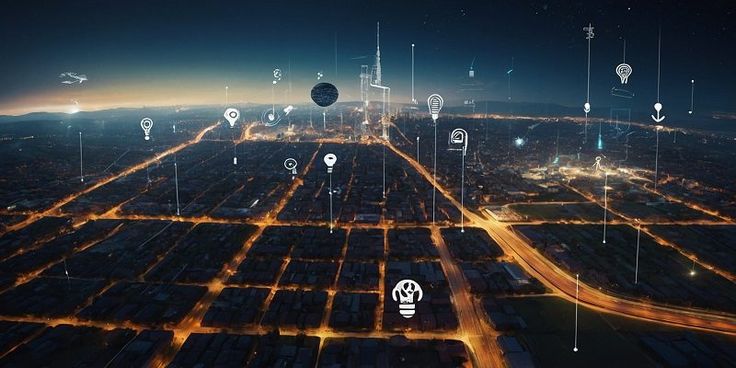Artificial Intelligence in Healthcare: Revolutionizing Patient Care
Artificial Intelligence (AI) is transforming many aspects of modern life, and its impact on healthcare is particularly profound. By leveraging sophisticated algorithms and large datasets, AI is revolutionizing patient care, enhancing diagnostics, personalizing treatments, and improving operational efficiency. This article explores the various ways in which AI is reshaping healthcare, highlighting its benefits, challenges, and future potential.
1. Enhanced Diagnostics and Predictive Analytics
AI has the potential to significantly improve the accuracy and efficiency of medical diagnostics. By analyzing large volumes of data, AI algorithms can identify patterns and make predictions that might be missed by human practitioners.
- Medical Imaging: AI is increasingly being used to analyze medical images, such as X-rays, MRIs, and CT scans. Machine learning algorithms can detect abnormalities, such as tumors or fractures, with high accuracy. For example, AI systems have demonstrated the ability to identify early signs of cancer or cardiovascular diseases more effectively than traditional methods, aiding in early detection and treatment.
- Predictive Analytics: AI-driven predictive analytics can forecast patient outcomes and disease progression by analyzing historical data and identifying risk factors. This allows healthcare providers to implement preventative measures and tailor treatments to individual patients. For instance, AI models can predict the likelihood of a patient developing chronic conditions like diabetes or heart disease based on their medical history and lifestyle factors.
2. Personalized Medicine
Personalized medicine aims to tailor healthcare treatments to individual patients based on their unique genetic, environmental, and lifestyle factors. AI is playing a crucial role in advancing personalized medicine by analyzing complex datasets and identifying the most effective treatments for each patient.
- Genomic Analysis: AI algorithms can analyze genetic data to identify mutations and variations associated with specific diseases. This information helps in the development of targeted therapies and precision medicine approaches. For example, AI is being used to match cancer patients with personalized treatment options based on their genetic profiles, leading to more effective and less toxic therapies.
- Drug Discovery and Development: AI is accelerating the drug discovery process by analyzing vast amounts of biological and chemical data to identify potential drug candidates. Machine learning models can predict how different compounds will interact with biological targets, speeding up the development of new medications and reducing the time and cost associated with traditional drug discovery methods.
3. Improved Patient Monitoring and Care Management
AI technologies are enhancing patient monitoring and care management by providing real-time insights and facilitating proactive interventions.
- Wearable Devices: AI-powered wearable devices, such as smartwatches and fitness trackers, can continuously monitor vital signs, physical activity, and other health metrics. These devices can detect anomalies and alert patients and healthcare providers to potential health issues, enabling timely intervention and management.
- Remote Monitoring: AI-driven remote monitoring solutions enable healthcare providers to track patients’ health conditions from a distance. For example, AI systems can analyze data from remote sensors and provide real-time alerts if a patient’s condition deteriorates. This technology is particularly valuable for managing chronic conditions and providing care to patients in underserved or remote areas.
4. Streamlined Administrative Processes
AI is also transforming the administrative aspects of healthcare, leading to more efficient operations and reduced administrative burdens.
- Automated Documentation: AI-powered natural language processing (NLP) systems can automate the process of documenting patient interactions and medical records. This reduces the time spent on manual data entry and allows healthcare providers to focus more on patient care. For example, AI can transcribe and summarize clinical notes, making it easier for providers to access and manage patient information.
- Predictive Scheduling: AI algorithms can optimize scheduling and resource allocation by predicting patient demand and identifying trends. This helps healthcare facilities manage appointments, reduce wait times, and improve patient flow. For instance, AI can predict peak times for patient visits and adjust staff schedules accordingly.
5. Enhancing Patient Engagement and Support
AI is improving patient engagement and support by providing personalized information and assistance.
- Virtual Health Assistants: AI-powered virtual assistants can provide patients with information about their health conditions, treatment options, and medication management. These assistants can answer questions, offer reminders, and provide guidance, improving patient understanding and adherence to treatment plans.
- Chatbots and Telemedicine: AI chatbots can assist with initial patient inquiries, triage symptoms, and provide basic medical advice. Telemedicine platforms integrated with AI can offer virtual consultations, allowing patients to receive care without leaving their homes. This improves access to healthcare services and reduces the burden on in-person clinics and hospitals.
6. Addressing Challenges and Ethical Considerations
While AI offers numerous benefits, there are also challenges and ethical considerations that need to be addressed.
- Data Privacy and Security: The use of AI in healthcare involves the collection and analysis of sensitive patient data. Ensuring the privacy and security of this data is crucial to maintaining patient trust and complying with regulations such as the Health Insurance Portability and Accountability Act (HIPAA) in the United States.
- Bias and Fairness: AI algorithms are only as good as the data they are trained on. If the training data is biased or unrepresentative, it can lead to biased outcomes and disparities in care. Addressing these biases and ensuring fairness in AI systems is essential for equitable healthcare.
- Regulation and Accountability: The integration of AI into healthcare raises questions about regulation and accountability. Ensuring that AI systems are rigorously tested, validated, and monitored for safety and efficacy is important to prevent potential risks and ensure reliable performance.
7. The Future of AI in Healthcare
The future of AI in healthcare holds exciting possibilities, with ongoing advancements in technology and research paving the way for further innovations.
- Integration with Emerging Technologies: AI is likely to be increasingly integrated with other emerging technologies, such as robotics, augmented reality (AR), and blockchain. For example, AI-powered robots could assist with surgeries or automate repetitive tasks, while AR could enhance medical training and patient education.
- Expansion of Applications: As AI continues to evolve, its applications in healthcare are expected to expand further. This could include advancements in areas such as mental health, where AI could provide support for managing conditions like depression and anxiety, or in personalized nutrition, where AI could tailor dietary recommendations based on individual health data.
- Global Impact: AI has the potential to improve healthcare outcomes on a global scale, particularly in low-resource settings. By providing access to advanced diagnostic tools and personalized care, AI can help address healthcare disparities and improve access to quality care in underserved regions.
Conclusion
Artificial Intelligence is revolutionizing healthcare by enhancing diagnostics, personalizing treatments, improving patient monitoring, and streamlining administrative processes. While there are challenges and ethical considerations to address, the potential benefits of AI in healthcare are immense. As technology continues to advance, AI is set to play an increasingly important role in shaping the future of patient care, making healthcare more efficient, effective, and accessible. By harnessing the power of AI, we can move towards a future where healthcare is more personalized, proactive, and responsive to the needs of patients worldwide.










